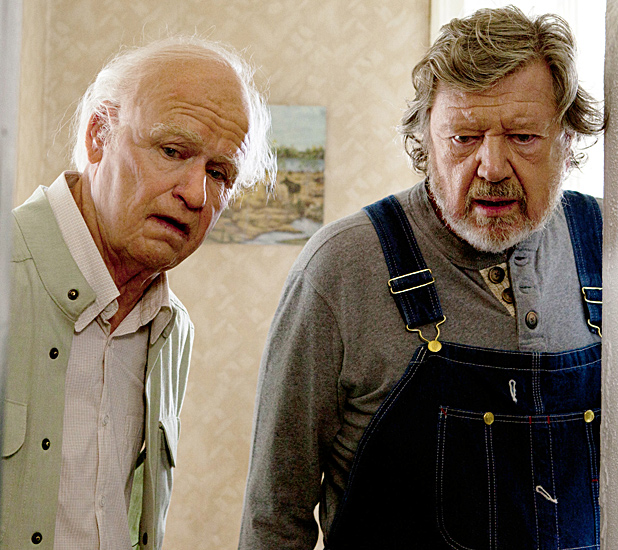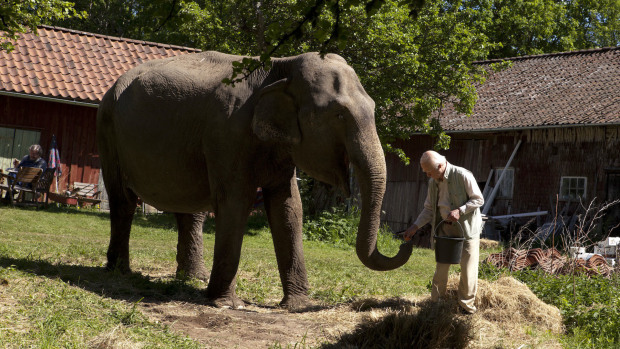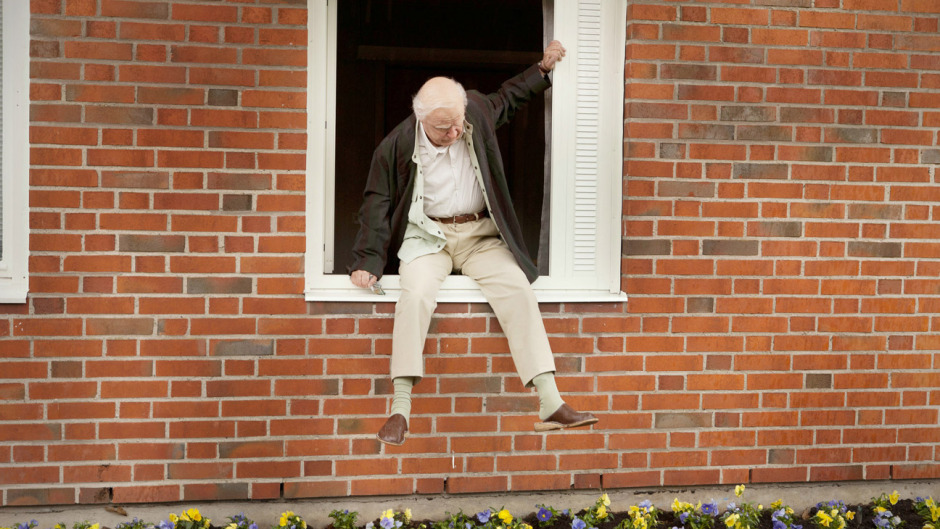As comedies go, Felix Herngren’s The 100-Year-Old-Man Who Climbed Out the Window and Disappeared is fantastical and original. Set mainly in Sweden, but also playing out against the backdrop of foreign locales like Djibouti, Spain and Bali, this is a quirky film of imagination and verve adapted from Jonas Jonasson’s best-selling novel, which has been published in 38 countries.
It opens in Canadian theaters on Oct. 10.
Its unlikely leading man, Allan Karlson (Robert Gustafsson), is almost 100 years old. He lives in a spartan cottage in the countryside and his companion and favorite living creature is his cat, Molotov, whom he’s petting when the camera first pans on the pair. Allan, looking hale and hearty, lets Molotov scamper into the yard. When he doesn’t return, Alan looks for him outside. To his shock and consternation, Molotov is dead, having been mauled by a fox.
Allan exacts his revenge, blowing up the fox with a stick of dynamite, but the blast lands him in a retirement home. On the day the staff is due to celebrate his 100th birthday, he slips out, jumping from a ground-floor window, never to be seen again.
This is where Herngren cranks up the action, turning his film — the highest grossing Swedish movie of all time — into a picaresque comedy-cum adventure flush with flashbacks from Allan’s amazing life on the center stage of history.
Still wearing a bath robe after his escape, the slightly dotty Allan walks to the train station and plunks down enough loose change to buy a one-way bus ticket to a nearby village. Absent-mindedly, he makes off with the suitcase of a biker and then finds himself in the company of Julius (Iwar Wiklander), a somewhat disreputable character who offers him a meal. To their amazement, they find 50 million Swedish crowns in the suitcase.

Around this point, the first flashback unfolds. Allan’s father, accused of being a blasphemer, is shot by a firing squad in pre-revolutionary Russia. His mother dies of exertion, leaving behind some sage advice: “Don’t think so much. Just do it.”
The money in the suitcase belongs to a British gangster, and judging by his litany of profanities, he wants it back immediately, or else. The biker who lost the suitcase in the first place tracks down Allan, and all hell breaks loose.
Two more colorful flashbacks take us to Spain, where Allan blows up bridges and saves Francesco Franco’s life during Spain’s civil war, and to the United States, where he toils as a construction worker on a Manhattan skyscraper and works as a consultant in a Los Alamos atomic bomb laboratory.
Meanwhile, Benny (David Wiberg), an eccentric student, gives Allan and Julius a lift. Unbeknownst to them, the bikers are in hot pursuit and a police detective has taken an interest in the case. One of the bikers, a dim-witted fellow, catches up with the threesome, but he messes up after slipping on elephant manure.

In yet more improbable flashbacks, Allan meets Joseph Stalin in the Kremlin, finds himself imprisoned in a Soviet gulag and works for the CIA and the KGB as a double agent. “One thing always leads to another,” he waxes philosophic.
For good measure, Herngren throws in a suicide bombing in Africa.
It’s all in good fun, but nothing can be taken at face value in this Swedish romp, which is high on wry and sly humour.
Watching this movie is akin to reading a top-notch comic book, with its sharply-drawn off-beat characters, incredulous situations and super-charged violence.
It’s a charmer.
